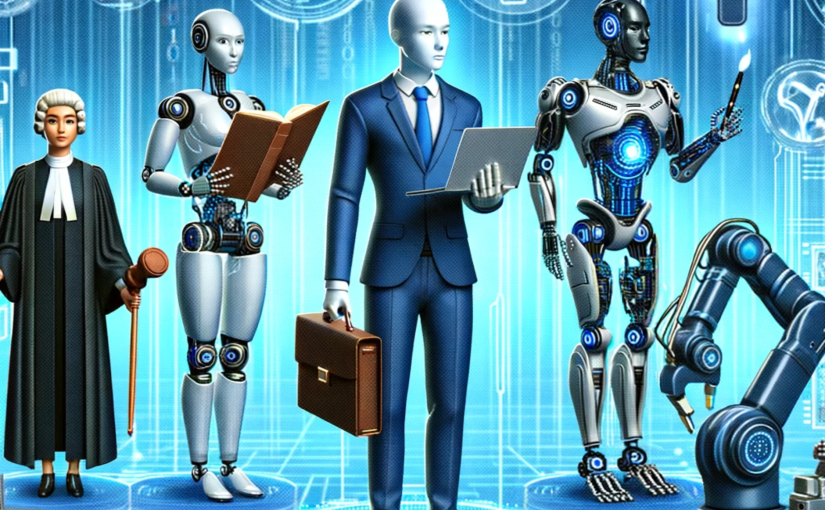New research suggests that most jobs could be disrupted in some way by generative AI in the next ten years.
The study published on January 10th by tech consulting firm Cognizant, in collaboration with Oxford Economics, found that around 9% of the current US workforce may be displaced by the new technology. It also reported that thanks to AI, 11% of workers may lose their jobs and struggle to find new employment.
This difficulty comes as the skills workers possess for their current roles may not be easily transferable to a job market increasingly dominated by artificial intelligence.
A specialized model was used to reveal three scenarios reflecting low, middle, and high levels of AI business adoption, which first examined how quickly artificial intelligence would be utilized within a company.
The authors explain that from 2023 to 2026, users will be in the “experimentation and cautious” phase, with organizations tentatively deploying generative AI for tasks that are “manageable in scope and low in risk — like image creation, text generation for reports and emails, and code suggestions for developers.” It is expected that 13% of businesses will implement this during this period.
It is said that by 2026 to 2030, there will be a notable rise in Al’s role across a range of professions. The top-end prediction reveals that AI usage will leap from 13% to 31% in just four to eight years. The research also claims that more than half of all general managers and operations managers will be exposed to AI by this time.
The researchers also believe that after 15 years, while AI employment will continue, it is likely to slow down.
Recommendations for upskilling the workforce
The study recommends that employees are “reskilled” in order to try and protect them from job losses and to maintain a brand’s reputation. It also proposes that organizations build a robust technological infrastructure designed to accommodate the rapid pace of AI development, including policies, structures, and operating processes.
At the same time, it warns against potential bias formulated by AI. The research calls for organizations to create safeguards that minimize the risk of partiality, error, and ethically problematic decisions. Finally, it also encourages using AI to benefit employees’ lives by shortening the workday or week.
The video gaming industry has already called for guardrails against AI. In December, the game workers union at Zenimax announced that they had reached an agreement with Microsoft that “commits ZeniMax to uses of AI that augment human ingenuity and capacities, to ensure that these tools enhance worker productivity, growth, and satisfaction without causing workers harm.”
Featured image: DALL-E

The post “Generative AI set to disrupt majority of jobs in next decade, study reveals” by Suswati Basu was published on 01/24/2024 by readwrite.com






































